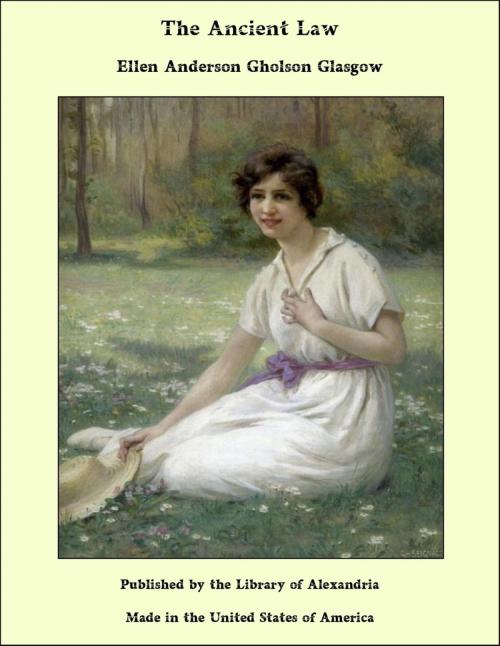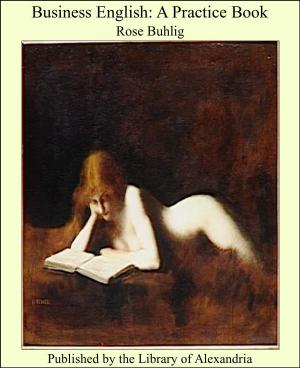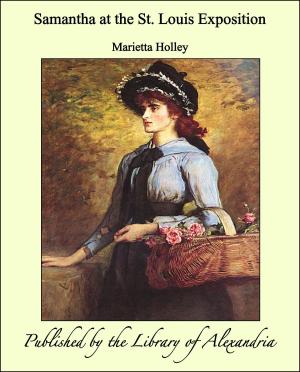| Author: | Ellen Anderson Gholson Glasgow | ISBN: | 9781465626370 |
| Publisher: | Library of Alexandria | Publication: | March 8, 2015 |
| Imprint: | Language: | English |
| Author: | Ellen Anderson Gholson Glasgow |
| ISBN: | 9781465626370 |
| Publisher: | Library of Alexandria |
| Publication: | March 8, 2015 |
| Imprint: | |
| Language: | English |
THOUGH it was six days since Daniel Ordway had come out of prison, he was aware, when he reached the brow of the hill, and stopped to look back over the sunny Virginia road, that he drank in the wind as if it were his first breath of freedom. At his feet the road dropped between two low hills beyond which swept a high, rolling sea of broomsedge; and farther still—where the distance melted gradually into the blue sky—he could see not less plainly the New York streets through which he had gone from his trial and the walls of the prison where he had served five years. Between this memory and the deserted look of the red clay road there was the abrupt division which separates actual experience from the objects in a dream. He felt that he was awake, yet it seemed that the country through which he walked must vanish presently at a touch. Even the rough March wind blowing among the broomsedge heightened rather than diminished the effect of the visionary meeting of earth and sky. As he stood there in his ill-fitting clothes, with his head bared in the sun and the red clay ground to fine dust on his coarse boots, it would have been difficult at a casual glance to have grouped him appropriately in any division of class. He might have been either a gentleman who had turned tramp or a tramp who had been born to look a gentleman. Though he was barely above medium height, his figure produced even in repose an impression of great muscular strength, and this impression was repeated in his large, regular, and singularly expressive features. His face was square with a powerful and rather prominent mouth and chin; the brows were heavily marked and the eyes were of so bright a blue that they lent an effect which was almost one of gaiety to his smile. In his dark and slightly coarsened face the colour of his eyes was intensified until they appeared to flash at times like blue lights under his thick black brows. His age was, perhaps, forty years, though at fifty there would probably be but little change recorded in his appearance. At thirty one might have found, doubtless, the same lines of suffering upon his forehead and about his mouth. As he went on over some rotting planks which spanned a stream that had gone dry, the road he followed was visible as a faded scar in a stretch of impoverished, neutral-toned country—the least distinctive and most isolated part of what is known in Virginia as "the Southside." A bleached monotony was the one noticeable characteristic of the landscape—the pale clay road, the dried broomsedge, and even the brownish, circular-shaped cloud of smoke, which hung over the little town in the distance, each contributing a depressing feature to a face which presented at best an unrelieved flatness of colour. The single high note in the dull perspective was struck by a clump of sassafras, which, mistaking the mild weather for a genial April, had flowered tremulously in gorgeous yellow.
THOUGH it was six days since Daniel Ordway had come out of prison, he was aware, when he reached the brow of the hill, and stopped to look back over the sunny Virginia road, that he drank in the wind as if it were his first breath of freedom. At his feet the road dropped between two low hills beyond which swept a high, rolling sea of broomsedge; and farther still—where the distance melted gradually into the blue sky—he could see not less plainly the New York streets through which he had gone from his trial and the walls of the prison where he had served five years. Between this memory and the deserted look of the red clay road there was the abrupt division which separates actual experience from the objects in a dream. He felt that he was awake, yet it seemed that the country through which he walked must vanish presently at a touch. Even the rough March wind blowing among the broomsedge heightened rather than diminished the effect of the visionary meeting of earth and sky. As he stood there in his ill-fitting clothes, with his head bared in the sun and the red clay ground to fine dust on his coarse boots, it would have been difficult at a casual glance to have grouped him appropriately in any division of class. He might have been either a gentleman who had turned tramp or a tramp who had been born to look a gentleman. Though he was barely above medium height, his figure produced even in repose an impression of great muscular strength, and this impression was repeated in his large, regular, and singularly expressive features. His face was square with a powerful and rather prominent mouth and chin; the brows were heavily marked and the eyes were of so bright a blue that they lent an effect which was almost one of gaiety to his smile. In his dark and slightly coarsened face the colour of his eyes was intensified until they appeared to flash at times like blue lights under his thick black brows. His age was, perhaps, forty years, though at fifty there would probably be but little change recorded in his appearance. At thirty one might have found, doubtless, the same lines of suffering upon his forehead and about his mouth. As he went on over some rotting planks which spanned a stream that had gone dry, the road he followed was visible as a faded scar in a stretch of impoverished, neutral-toned country—the least distinctive and most isolated part of what is known in Virginia as "the Southside." A bleached monotony was the one noticeable characteristic of the landscape—the pale clay road, the dried broomsedge, and even the brownish, circular-shaped cloud of smoke, which hung over the little town in the distance, each contributing a depressing feature to a face which presented at best an unrelieved flatness of colour. The single high note in the dull perspective was struck by a clump of sassafras, which, mistaking the mild weather for a genial April, had flowered tremulously in gorgeous yellow.















